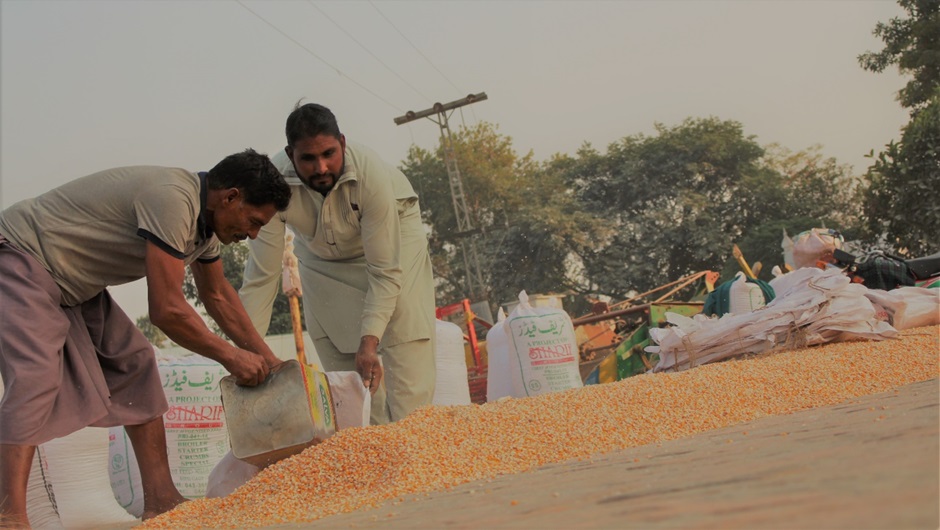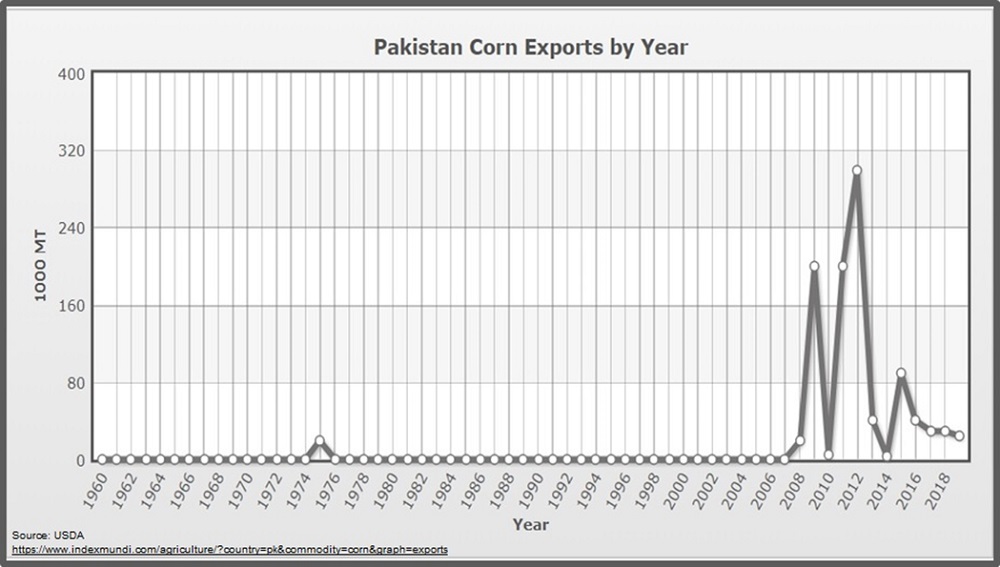
The agriculture sector is one of the most climate-sensitive sectors of Pakistan’s economy. It responds to temperature, precipitation, soil radiation, etc., which are directly associated with climate change. Rising temperature, uneven distribution of precipitation, floods, droughts, and other climatic disasters have affected human life along with socio-economic sectors of the world.
In Pakistan, maize is one of the important cereal crops which contributes 2.2 percent to the valued added products and 0.4 percent to the GDP. It is grown on an area of 1251 hectares with production of 5901 tonnes. In recent years, some mycotoxins, which we refer as Aflatoxins have been detected in maize crop grown in Pakistan. It has limited the export of Pakistani corn which causes losses in the economic benefit for all the chain actors linked with maize.
On the other hand, its consumption in the domestic market has been increased dramatically as Pakistani feed industry process/mill thousands of tons of maize every year to surge the demand of poultry sector. To address the issue of aflatoxin in maize crop, USDA and USAID joined hands with Pakistan Agricultural Research Council (PARC), Rafhan Maize Products Co. Ltd and CAB International to implement a programme namely ‘Aflatoxin Control in Pakistan’ using a cutting-edge USDA biocontrol technology.

This collaboration is hoping to change the landscape of maize crop in Pakistan while opening new windows to adopt and commercialization of biological control programs in Pakistan. This will also help our people to access improved quality food, which will not only lead to better human health, but also increase income of farmers by at least 10%. Moreover, this technology has the potential to reduce aflatoxin levels in about 60% of Pakistan’s total maize resulting in a positive impact on trade by improving the export potential.
Additional information
Aflatoxin Control Programme
Find out more about CABI’s work on aflatoxin control in Pakistan.
Author:
Dr Sabyan Faris Honey – Project Manager
Contributors:
Dr Hamzah Shahbaz Bhatti
Dr Muzammil Farooq
Mr Saqib Ali
For more information, please contact:
Deborah Hamilton
USDA
202-720-0335
Deborah.Hamilton2@usda.gov
1 Comment
Leave a Reply

I wish and pray your trails are successful and we can get the AflaPak registered in Pakistan. How are you going to do its commercial production. Do you establish some lab or production plant-how?. Are you looking for some investors also then.